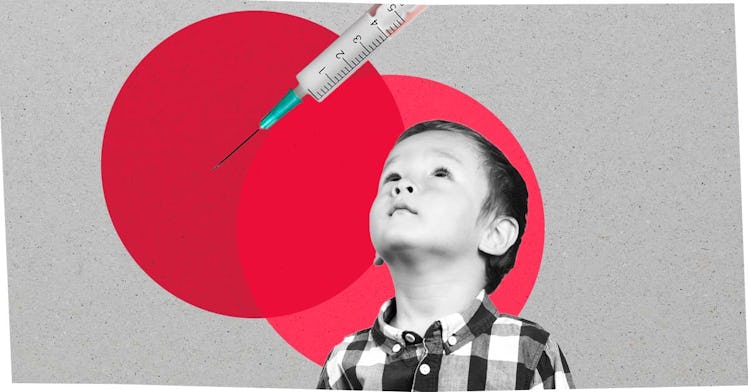Vaccine Questions for Parents of the Youngest Kids, Answered
Kids ages 5-11 can finally get the shot. But what about littler kids?

Now that the Pfizer vaccine has been authorized for children aged 5 to 11, some 19 million parents of one-, two-, three-, and four-year-olds are asking: What about us? If you were to read headlines about the vaccines for kids having arrived, you’d think children under the age of 5 don’t matter very much. Not so! But the smaller they come, the more cautious the vaccinologist.
Bill Muller, MD, PhD, a pediatric infectious disease specialist at Northwestern Feinberg School of Medicine who is working on a children’s COVID vaccine trial, says, “The studies are being appropriately cautious about extending the age to younger and younger ages… I want to reassure parents that these studies are really done very carefully.” In other words, parents of younger children should know that their time is coming, and your patience is nothing short of heroic. Here’s what to look forward to.
When will kids age 4 and under be able to get the COVID vaccine?
Some of the more optimistic experts expect that the Food and Drug Administration will authorize the Pfizer COVID vaccine for kids as young as 6 months by the end of the year. Muller, however, is a bit more conservative in his estimate. He thinks young kids will have to wait until early 2022.
Why is it taking so long?
Vaccine companies test the shot for different age groups in different batches, starting with adults, then moving down to adolescents, then older grade school kids, then the youngest of the bunch, Muller says. The studies for kids aged 4 and under aren’t completed yet because they started later than the studies for older kids.
Why didn’t the vaccine companies test the shot in all kids under 12 at once?
Younger kids are smaller and have less-developed immune systems than older kids, so they need a different dose of the COVID vaccine. Studies not only determine the safety and efficacy of the vaccine, but also what dose for a certain age group is both effective at provoking a strong immune response without producing too harsh of side effects. The studies also need to be broken into different age groups so that they’re more manageable for scientists to run.
“But five is not a magic number,” Muller says. In fact, Moderna is testing its vaccine in slightly different age groups than Pfizer. However, Moderna’s studies are taking longer than Pfizer’s, so kids aged 4 and under will almost certainly be able to receive the Pfizer vaccine first.
If 5 isn’t a magic number, can I lie about my 4.5-year-old’s age to get them vaccinated?
The American Academy of Pediatrics, Centers for Disease Control and Prevention, and many academic pediatricians advise against this, Muller says. Even if your 4.5-year-old is the size of a 5-year-old, their immune system can go through a lot of important development in those next six months, he says. Plus, that child would be getting a higher dose than someone their age probably should. And with a higher dose comes a higher risk of adverse reactions. For these reasons, Muller recommends waiting until your child is an age for which a COVID vaccine is authorized before getting it.
So, will the vaccine be safe for little kids?
That’s what scientists are working to find out. But there’s no reason to believe it won’t be, Muller says. The concern that most parents are having about the vaccine is that it very rarely causes myocarditis, or inflammation of the heart. (This condition usually goes away without permanent complications, according to the Mayo Clinic.) But adolescents are generally at higher risk for myocarditis than young children, so Muller expects this side effect will be even less of an issue for them than it is for teens. He also expects that young kids will experience fewer side effects from the shot in general.
Is there a way to get my kid an early COVID vaccine that doctors aren’t against?
Yes, you can enroll your kid in a COVID vaccine trial for their age group. Many trial sites are still enrolling, Muller says. Network with parents in your area and read local news publications to find trial sites, or find links to check for COVID vaccine trial sites here. However, if you do get into a vaccine trial, there’s a fair chance your child will get a placebo, so you can’t pull back on COVID precautions assuming that your child got the shot.
This article was originally published on